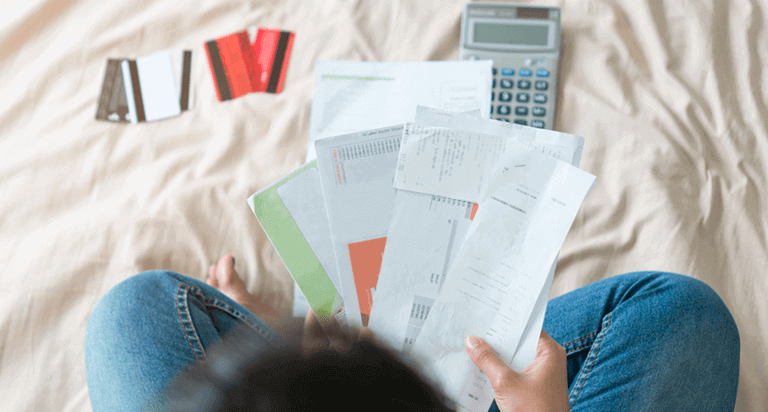How to Adjust Your Budget If You've Been Laid Off


Americans continue to face job losses and financial uncertainty. Here’s how to adjust your budget if you’ve suffered a loss of income. [Duration: 2:46]
Highlights:
- A job layoff often results in financial uncertainty and could be longer than expected, depending on the state of the economy and the industry you work in.
- Reviewing your current spending and adjusting your monthly budget wherever possible could help get you through the job layoff.
- If you find you may be at risk of missing payments, contact your lenders to see if they offer any assistance or forbearance programs.
Regardless of the job economy, there is always a risk of being laid off. Being laid off is not only a shock, it is also clearly a shock to your immediate financial stability. You may not know how to get a handle on your finances if you've recently been laid off, furloughed or taken a pay cut.
Furlough vs. laid off
Being laid off means you are no longer employed, while a furlough means you are temporarily on leave from a job without pay. A furlough can be for any number of reasons, such as medical or family leave, extended time off, or a slow down at a business. However, your focus will be on the impact and finding ideas for how to save money when unemployed or on leave without pay.
These five suggestions for what to do when you get laid off that can help you adjust your budget when you're facing a reduced cash flow:
- Evaluate your current spending and savings.
It's helpful to evaluate your current cash flow. Take stock of where you're spending money and separate those expenses into two categories: things you can't live without (such as housing, food and utilities) and things you can give up for now (such as online shopping, digital subscriptions and takeout meals). Determine how much you can reasonably afford to spend, and try to save the money, if there's some left over.
Next, figure out how much you've saved up, whether in a checking or savings account, an emergency fund or another location. Try to plan out how long these funds could cover your lost income. This can help you determine how much additional financial support you may need per month to stay afloat.
- Estimate your new monthly cash flow.
After you've successfully evaluated your current spending and savings, account for any additional money that may be coming your way, including unemployment benefits. While it can be challenging to predict when these benefits will reach you, knowing how far that money may stretch can help you better prepare for the road ahead.
- Determine where to make cuts.
An important step is to figure out how to save money when unemployed. Now that you understand your current spending and savings as well as your additional monthly cash flow, you should have most of the information you need to determine where you can cut back. It's likely that you're already holding off on major purchases and extra spending, but see where you may be able to reduce costs even further. Think long and hard about each nonessential item you consider buying, and try to stay focused on your long-term goal of persevering financially.
- Explore your debt repayment options.
If after crunching the numbers you feel you have limited resources to repay your debts while also keeping the lights on, reach out to your individual lenders to ask about debt repayment plans. Lenders may offer a variety of options for struggling borrowers, including deferred payments and forbearance agreements. Easing your debt burden, even for just a few months, may buy you enough time to recover and offer an alternative for how to save money when unemployed. You never know what may be available until you ask.
- Consider more substantial alternatives.
If you're strapped for cash now and these other options aren't enough to get you through, you may need to take more drastic action to keep up with your living expenses. Consider reaching out to friends and family members to ask for a personal loan, as they may be willing to offer you more agreeable terms than a traditional lending institution.
If you're a homeowner, you may want to take out a home equity loan or a home equity line of credit. Both of these options can leverage the difference between your home's value and your mortgage balance.
As a last resort, consider withdrawing from a retirement account. Be aware that if you decide to tap a traditional IRA or a 401(k) account, you may owe tax on the withdrawals and you may have to pay a penalty for withdrawing your money early. Roth IRAs, however, allow you to withdraw your contributions (but not your earnings) tax- and penalty-free after five years, although there are exceptions to that rule. Talk with your tax advisor for more information on how a retirement withdrawal might affect your finances.
Even though you may not be able to control a job loss or a pay cut, you do have the power to change your budget to stay on top of your monthly bills.
Get your free credit score today!
We get it, credit scores are important. A monthly free credit score & Equifax credit report are available with Equifax Core CreditTM. No credit card required.



